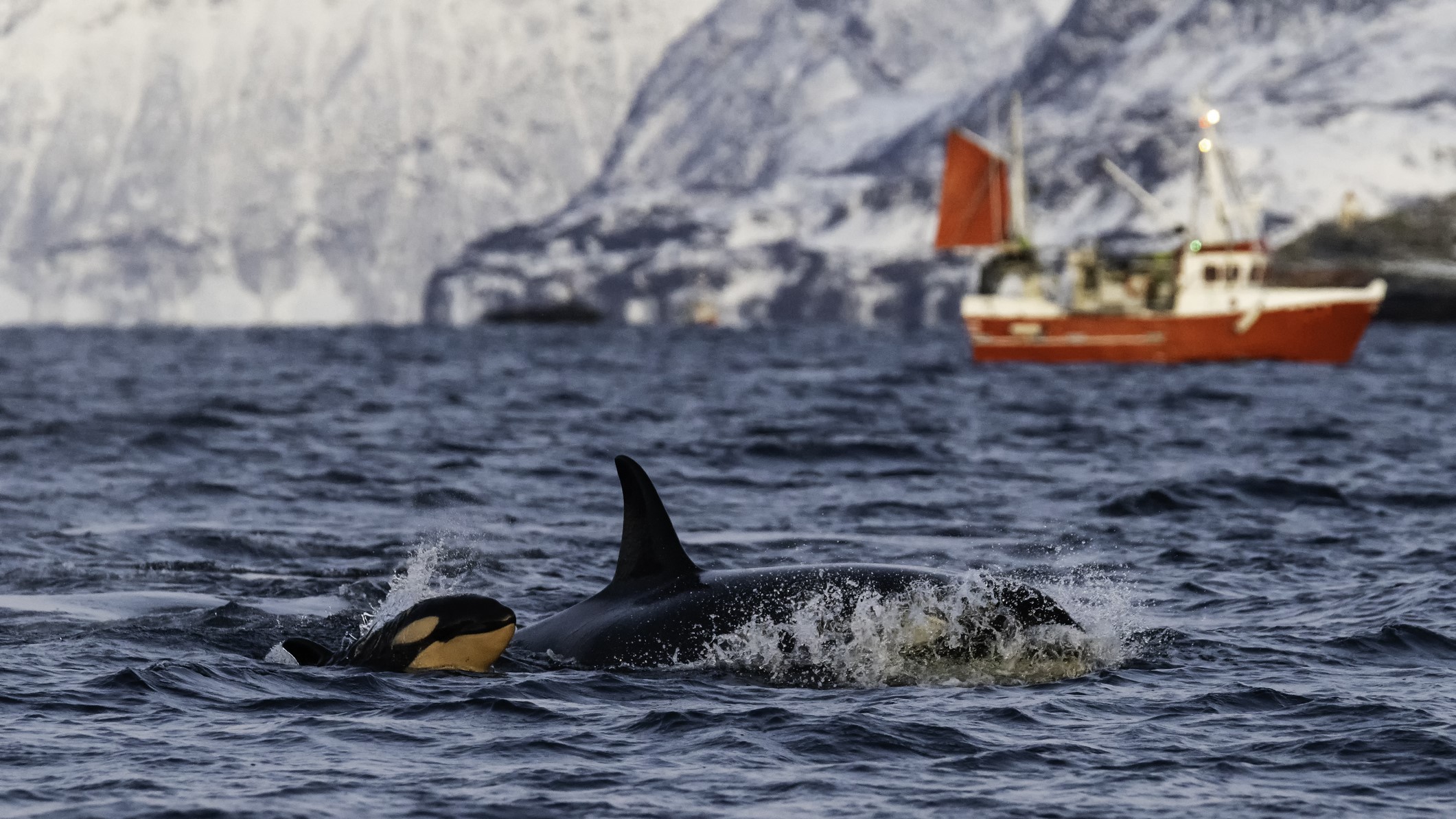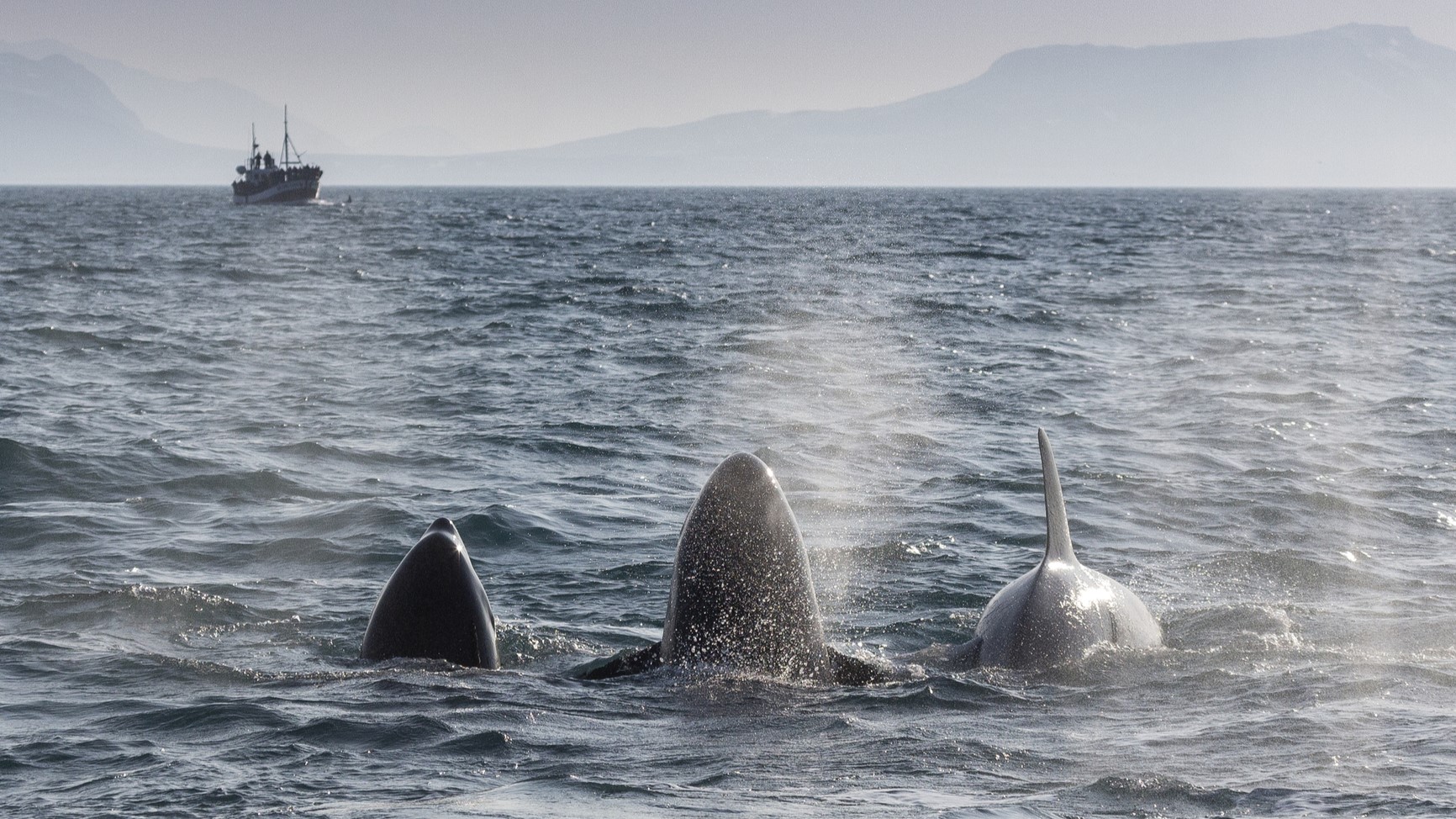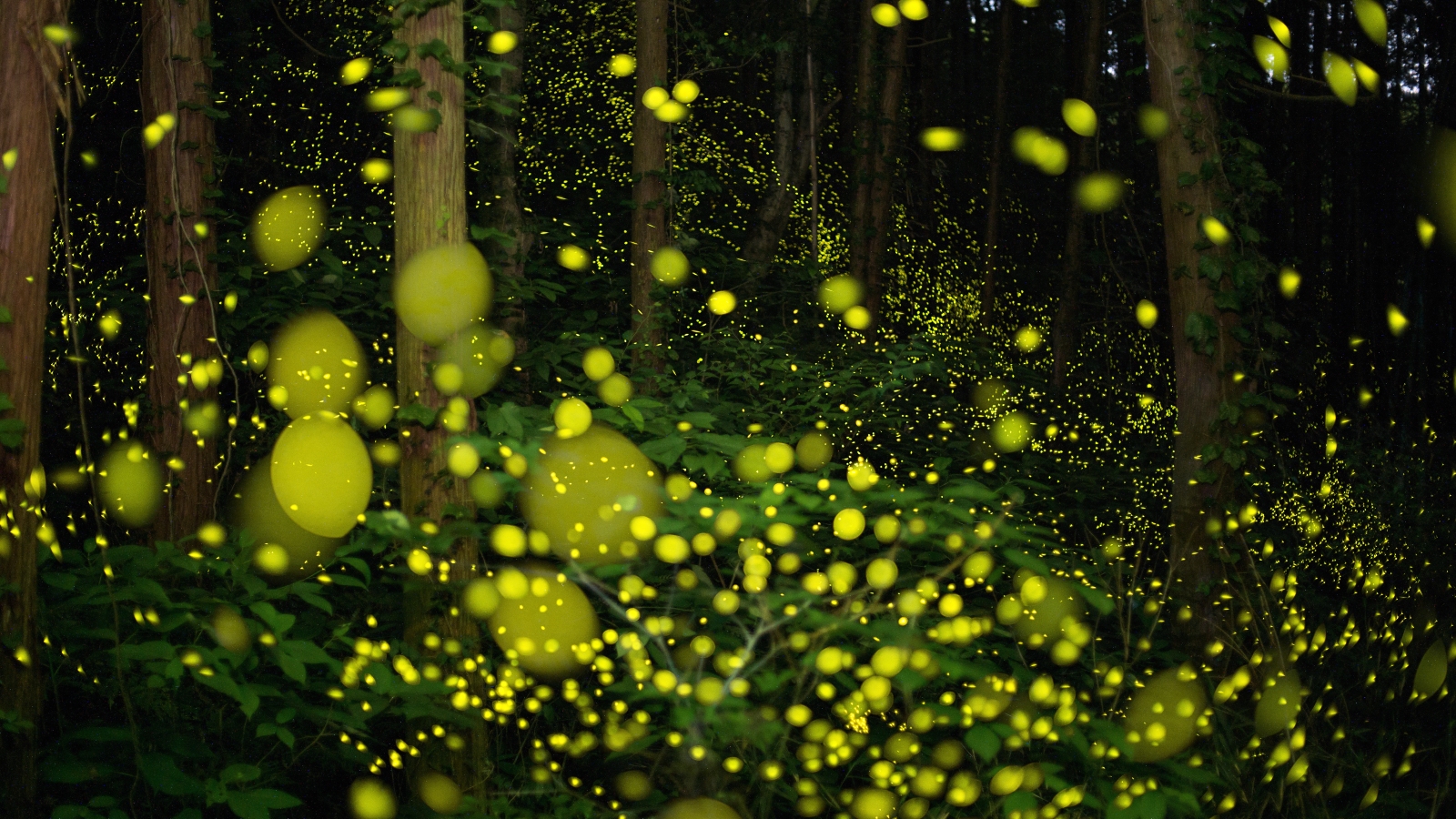Opportunistic orcas have developed a new feeding behavior that appears to be killing them
More orcas have died entangled in fishing gear in Alaska this year than in previous years, which may be linked to a "new behavior" where they feed in front of ascending fishing nets.
A record number of orcas have died this year after snacking on fish hauled up by commercial trawlers in Alaska but then getting entangled in fishing gear, according to the National Oceanic and Atmospheric Administration (NOAA).
Fishers have linked the increase in mortality to a "new behavior," in which orcas — also known as killer whales — feed in front of nets that fishers simultaneously pull to the surface.
"In 2023, our captains have reported an increase in the number of killer whales present near our vessels," the Groundfish Forum, a Seattle-based fishery trade association that oversees activities on 19 trawlers in North Pacific waters, said in a statement. While orcas are known to flock to fishing sites to feast on the catch, "marine mammal scientists are not sure why this change has occurred."
Orcas (Orcinus orca) are highly intelligent and innovative marine mammals that can imitate and learn from each other through a process called social learning. Orcas are known to exploit human fisheries, which provide them with all-you-can-eat buffets worldwide, according to a 2022 NOAA Fisheries report. Longline fisheries, which dangle lines of baited hooks to catch various fish species, are particularly attractive, as orcas can easily pluck food off the hooks.
Related: Inbreeding may be causing orca population in the Pacific Northwest to crash
Research has shown that poaching from fisheries is a behavior that can spread through orca populations via social learning.
This opportunistic feeding behavior occasionally leads to entrapment, injury and, in some rare cases, death. Five orcas were caught and died in fishing gear in the five-year period between 2016 and 2020, according to the report.
Get the world’s most fascinating discoveries delivered straight to your inbox.
But since January, the number of orcas that have died tangled up in nets off the coast of Alaska has been higher. In a statement published Sept. 21, NOAA Fisheries said groundfish trawlers operating in the Bering Sea and off the Aleutian Islands in the North Pacific have accidentally trapped 10 orcas in fishing gear so far this year. Only one animal was released alive, the agency said.
For the other nine orcas, "NOAA Fisheries is analyzing collected data to determine the cause of injury or death and determine which stocks these whales belong to through a review of genetic information," the statement said.
The agency is also reviewing information regarding an orca incidentally caught during the Alaska Fisheries Science Center's annual longline survey this summer, as well as the death of an orca found entangled in fishing gear on the Central Bering Sea slope on June 7.
Scientists hope the findings will shed light on the spike in orca injuries and deaths observed this year and help them develop guidelines to protect the animals.
Orcas are long-lived and reproduce slowly, so the accidental removal of a few individuals by fisheries may put the overall population at risk. In the Bering Strait, orcas are protected under the Marine Mammal Protection Act of 1972, which requires boat owners and operators to report to NOAA Fisheries any injuries or deaths that occur during fishing or survey operations.
"Our vessels are changing the way we operate to try to avoid whales, including moving our vessels when whales are encountered and voluntarily stopping fishing operations this year in fisheries where killer whale mortalities occurred," Groundfish Forum, whose vessels have been involved in several fatal encounters with orcas this year, said in their statement.

Sascha is a U.K.-based staff writer at Live Science. She holds a bachelor’s degree in biology from the University of Southampton in England and a master’s degree in science communication from Imperial College London. Her work has appeared in The Guardian and the health website Zoe. Besides writing, she enjoys playing tennis, bread-making and browsing second-hand shops for hidden gems.




